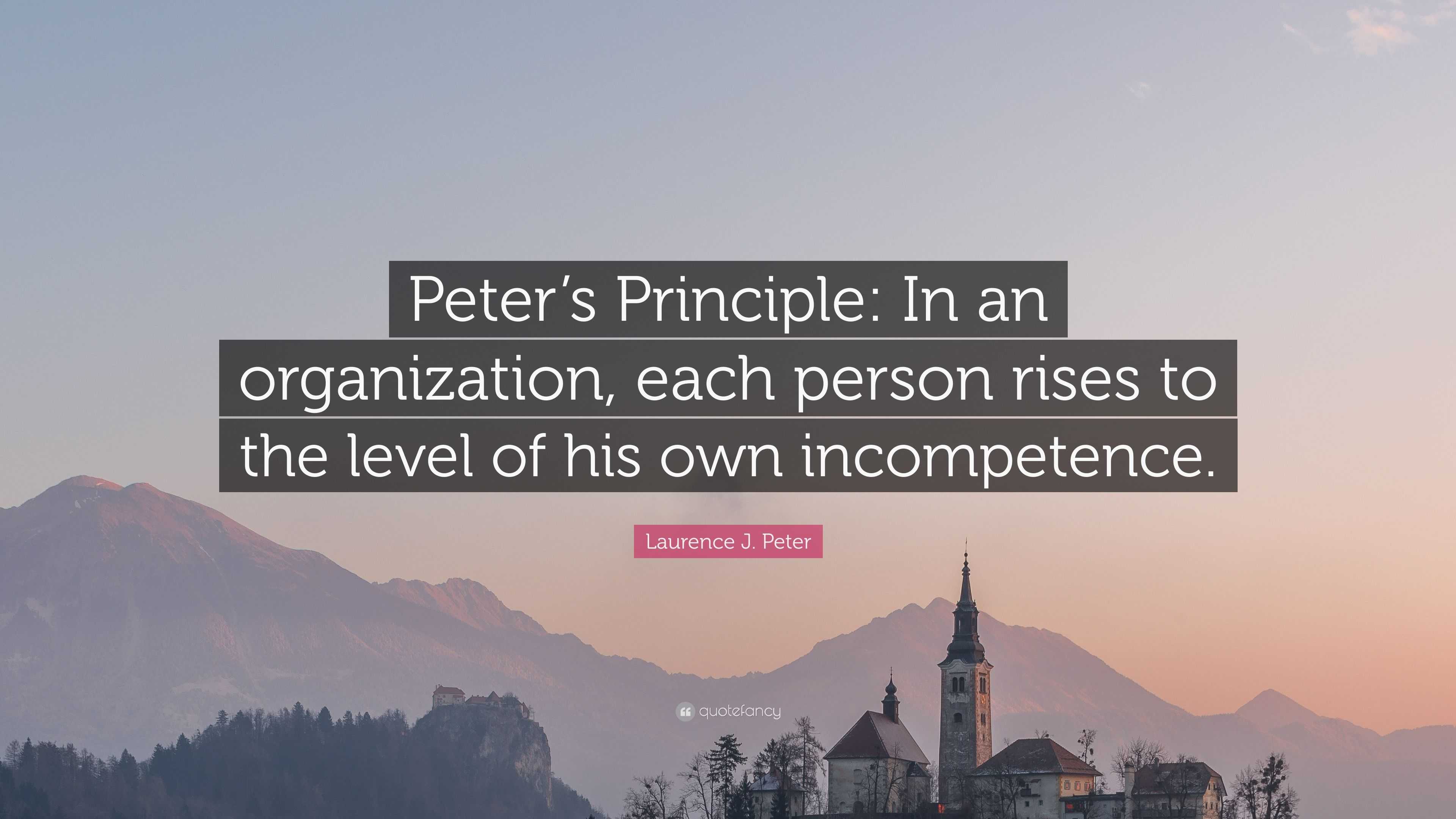
Peter, the spot-on real-life implications gave it credibility. The Peter principle is a concept in management developed by Laurence J. Though the Peter Principle first started as a sarcasm inscribed in the book by Laurence J.

The competence to do one’s job drops as they get promotions and that is the Peter Principle. Murphys Law, the Peter Principle and Barack Obama By Kyle-Anne Shiver What happens when everything that can go wrong in a persons character formation does go wrong, and that person continues. He published a book about this Topic in 1969 called The Peter Principle. Its name comes from the person who observed this phenomenon: Laurence J. Until they reach their level of incompetence. As they get promoted to the position of the Head of the Creative Department that may also oversee Content Writing in which s/he lacks any idea, the competency at their job starts to drop.Īfter the second promotion, s/he may be promoted to a managerial position in the company but they may struggle to cope with the constant pressure to deal with people and have no designing work to do in which they are very competent. What is the Peter Principle The Peter Principle is a rule that states that Employees tend to move up until they don’t do well.

Peter Principle refers to the people who are promoted to the level of their incompetence and stick there.įor example, if an introverted individual was appointed as a highly reputable UI/UX Designer but when s/he does very well at their job and in time, deserves a promotion. It is the principle of an organization according to which every employee within a hierarchy tends to rise to his or her level of incompetence. But as they climb the ladder higher, they grow more and more incompetent to the new set of roles that come with the promotions. Peter and it entails the fact that in hierarchical organizations, employees get appointed for their competency but with time, they get promoted higher and higher.

Peter Principle is a concept in the field management that was developed by a Canadian educator, Laurence J. Peter and Raymond Hull in their 1969 book The Peter Principle, contends that, in a hierarchy, people are sooner or later promoted to positions which they are no.


 0 kommentar(er)
0 kommentar(er)
